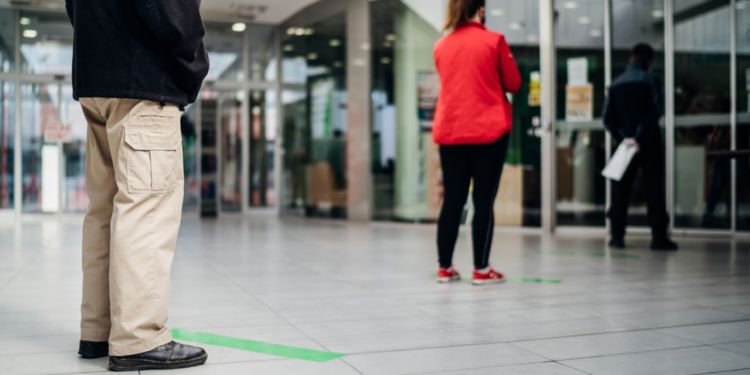
The COVID-19 crisis has brought about many changes in Singapore, as in most countries, whether in terms of entry conditions, labor market, real estate, or social life. The last remaining effect of the pandemic in our daily life faded away with the removal of obligatory wearing of masks in public transportation in February 2023, but like every other country, Singapore is grappling with bigger changes in the labor market and housing. If you're looking to relocate to Singapore after the crisis, here's what you should expect.
What are the current regulations for entering Singapore?
Since February 2023, there have been no longer any COVID-19 measures for travelers arriving in Singapore, regardless of vaccination status or traveler profile. Up-to-date vaccination records will be sought for permanent residence and long-term pass applications.
Singapore Immigration and Checkpoint Authority (ICA) has a straightforward website to guide you with the most recent requirements.
All passengers entering Singapore need to submit their arrival card within 3 days before arriving at ICA. You can either submit it online here or use the checkpoint tablets at Changi Airport.
Have there been visa changes recently?
With effect from 9 February 2024, holders of ordinary passports issued by the People's Republic of China will be exempted from visa requirements for a stay of up to 30 days in Singapore.
Is it easy to find work in Singapore following the crisis?
As in most countries, the COVID-19 pandemic had a considerable impact on the Singaporean labor market. According to the Ministry of Manpower, there was a decline in the number of jobs available in the manufacturing, services, and construction sectors during COVID-19, but the construction sector rebounded strongly with the urgent need for new housing stock in 2023.
According to the research of the World Economic Forum, Singapore is expected to have lower labor volatility in the next 5 years between 2023 and 2027 compared to the rest of the world despite the risk of transformation of the geopolitical divisions of corporate companies.
As of 1 September 2023, the Singapore Ministry of Manpower updated the criteria to qualify for employment visas for foreigners in Singapore. Candidates need to pass the points-based COMPASS (complimentary assessment framework) in addition to meeting the EP qualifying salary, which is at least 5,000 SGD monthly for all sectors except financial services (increases progressively with age from age 23, up to $10,500 at age 45 and above). Exemptions for this salary requirement are having a monthly salary of S$22,500 or an intra-corporate transfer.
The new requirements may seem daunting, but the relative stability and the growth trend in the labor market in Singapore are worth investing in. If you are considering moving with your family, it is better to get offers for both partners, if possible, before moving to Singapore or a high enough offer for one.
How is the real estate market in Singapore following the crisis?
After the crises, Singapore has faced rapid demand for property sales. The Singaporean government introduced property cooling measures to control the upsurge in demand, and with these measures, the demand started to stabilize in the last quarter of 2023.
Meanwhile, the demand in the rental market has shrunk, with the completion of 20,000 new units by the end of 2023 as the tenants started to move their new houses.
According to PropertyGuru, whom you will soon meet if you plan to relocate to Singapore,
“In the first six months of 2024, property prices are anticipated to remain high yet stable. Demand, while subdued, should maintain a consistent upward trajectory”.
What happened was during and after the pandemic, and as for the recovery, Singapore's government is trying hard and taking all necessary measures to maintain stability.
Has the cost of living changed because of the crisis in Singapore?
According to reports by Mercer and ECA International, Singapore remains one of the world's most expensive countries for expats, and this is not likely to change in light of the COVID-19 crisis. The food and retail industries are the most impacted sectors. There has been a gradual GST increase from 7 to 8% in 2023 and 9% in 2024. Inflation was 6.1% in 2022 and 4.8% in 2023.
How about the lifestyle in Singapore? Have there been any major changes in social life?
Social life in Singapore jumped back to pre-COVID times, with theatres, concerts, festivals, and celebrations going on all around the year. Traveling abroad and arranging long weekend trips to nearby beaches are back. You will see crowds in shopping malls at weekends or lines in front of popular cafés and restaurants. People had adopted the habit of continuing to use masks for different reasons, such as precaution for the crowd or air quality, which became very handy when the news about the increase in respiratory illnesses in China in November 2023 created concerns. In Singapore, you can feel safe and continue your daily life with the comfort of knowing that everyone will do their part without the enforced rules in terms of public health.
We do our best to provide accurate and up to date information. However, if you have noticed any inaccuracies in this article, please let us know in the comments section below.











